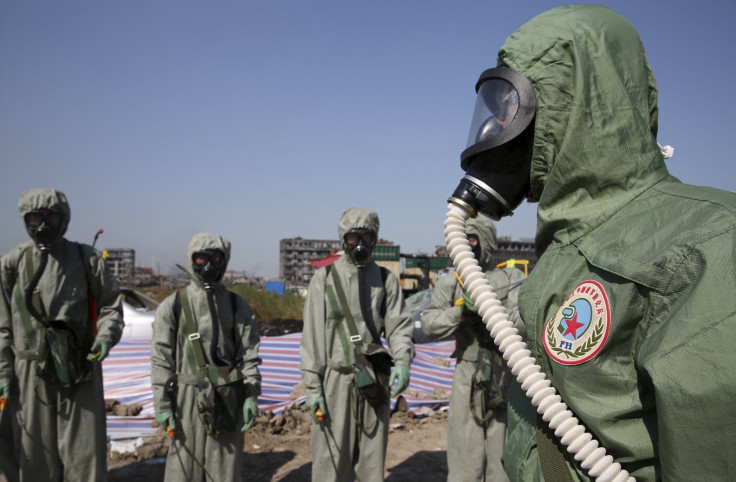China's Traffic Police On Alert After Chemical Blasts: Xinhua

SHANGHAI (Reuters) - Chinese traffic police are on high alert nationwide for dangerous chemicals, ten days after a warehouse exploded in northeastern China killing at least 116 people, state media said on Saturday.
Two huge blasts in the warehouse storing dangerous chemicals in Tianjin, the world's 10th-busiest port, forced the evacuation of thousands of people after toxic chemicals were detected in the air.
The Public Security Ministry ordered police to increase roadside checks and tighten the approval process for transportation permits, the official Xinhua news agency said.
City officials have repeatedly said contaminants found in the wake of the blasts, including deadly sodium cyanide, pose no risk to the public.
But concerns about longer-term environmental degradation and the potential impact on human health have grown, particularly after authorities confirmed that more than 700 tonnes of sodium cyanide were stored at the warehouse that blew up.
More than 100 chemical firms across seven provinces have been told to shut down or suspend operations due to safety violations in recent days, announcements by regional governments show.
Chinese media reported the site of the explosions was too close to nearby homes and accused Tianjin Dongjiang Port Ruihai International Logistics, the firm whose warehouse exploded, of violating national regulations.
The regulations state that large warehouses which store dangerous chemicals should be at least 1,000 meters from public buildings and transportation networks, media said.
But a safety assessment report conducted about Ruihai before the explosions last week contradicted those rules, Xinhua reported.
The report found Ruihai met regulatory standards, despite being 310 meters away from a highway, 420 meters away from light rail and 970 meters away from residential areas.
The report reappeared on Tianjin Zhongbin Haisheng Health and Safety Evaluation and Monitoring Company's (Zhongbin Haisheng) website, Xinhua said on Saturday.
Zhongbin Haisheng's website had been inaccessible from Aug. 14, according to Xinhua, and it was unclear the exact time it became accessible again.
Ruihai executives have said they used connections to obtain safety approvals.
Public anger against the government has surged in Tianjin among residents of apartments near the blasts who believed authorities neglected to properly police Ruihai.
China's State Council, or cabinet, promised it would perform a timely and accurate investigation into the blasts, Xinhua said, citing a State Council official.
(Reporting by Sue-Lin Wong; Editing by Nick Macfie)
© Copyright Thomson Reuters 2024. All rights reserved.







